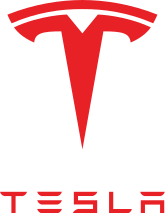Tesla’s Recall: Autopilot Safety Concerns and Legal Implications
 Tesla, the electric vehicle pioneer, is recalling more than 2 million vehicles in the United States. This recall comes after a thorough investigation by the National Highway Traffic Safety Administration (NHTSA) found that Tesla’s Autopilot safety system was “not sufficient to prevent driver misuse.”
Tesla, the electric vehicle pioneer, is recalling more than 2 million vehicles in the United States. This recall comes after a thorough investigation by the National Highway Traffic Safety Administration (NHTSA) found that Tesla’s Autopilot safety system was “not sufficient to prevent driver misuse.”
The recall affects a wide range of Tesla models, including the 2012-2023 Model S, 2016-2023 Model X, 2017-2023 Model 3, and 2020-2023 Model Y, all equipped with Autosteer, a feature that Tesla describes as “traffic-aware cruise control.” According to the recall notice, in certain circumstances when Autosteer is engaged, the controls may not be sufficient to prevent driver misuse.
Autosteer is designed to maintain speed, detect lane markings, and monitor the presence of other vehicles. However, Tesla emphasizes that drivers must keep their hands on the steering wheel and be prepared to take immediate action while using the feature.
The NHTSA initiated its investigation after looking into 11 incidents involving Tesla’s Autosteer in August 2021
This inquiry expanded to include nearly 1,000 crashes where Autopilot was initially alleged to have been used, with a specific focus on 322 Autosteer-involved crashes, including frontal impacts and incidents where the system disengaged unexpectedly.
The investigation found that in certain situations with Autosteer, drivers failed to maintain responsibility for vehicle operation, were unprepared to intervene when necessary, or did not recognize when Autosteer was canceled or disengaged, leading to an increased risk of crashes.
Tesla initially disagreed with the NHTSA’s engineering analysis of the Autosteer issue
Still, on December 5, the company voluntarily agreed to administer a recall and remedy the situation through a free over-the-air software update to impacted vehicles. This update will introduce additional controls and alerts to reinforce drivers’ responsibility when Autosteer is engaged.
Impacted vehicle owners will be notified via mail about the recall. Additionally, Tesla reported that, as of December 8, it had identified nine warranty claims received between July 13, 2021, and September 17, 2023, that “may be related” to the Autosteer issue.
This recall represents the latest challenge for Tesla, a company that has long touted the safety of its Autopilot and “Full Self-Driving” mode. Recently, Tesla defended its Autopilot system, stating that “Safety metrics are emphatically stronger when Autopilot is engaged than when not engaged,” in response to reports of fatal or serious crashes where Autopilot should not have been enabled.
Earlier this year, Tesla recalled over 360,000 vehicles due to issues with its “full self-driving” software, highlighting the ongoing concerns surrounding autonomous driving features.
While autonomous systems hold the promise of improving safety, they must be rigorously tested and continually improved to ensure the highest level of safety for drivers and other road users.
Read more about the Tesla recall in the New York Times
https://abcnews.go.com/GMA/News/video/tesla-recall-2-million-cars-105619333
 New York Personal Injury Attorneys Blog
New York Personal Injury Attorneys Blog


